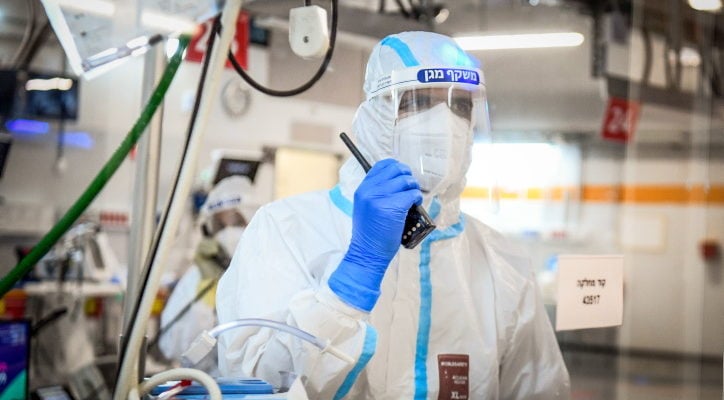Many hospitals are already over capacity, and the promised funding has yet to appear.
By Batya Jerenberg, World Israel News
A mere 20 beds have been added countrywide to Israeli hospitals since the Covid-19 pandemic began, a Knesset committe heard Monday.
Hospitalization numbers are high, and the medical centers are not getting the desperately needed government funding they were promised.
According to Maariv, the Knesset Research and Information Center (RIC) reported Monday in the legislature’s State Audit Committee that from January to July this year, the number of hospital beds in Israel rose from 16,301 to 16,321. This is despite the fact that thousands have been hospitalized in the past several months with the novel coronavirus and that it has been known for years that Israel suffers from a severe shortage of hospital beds.
Regarding the pandemic, reports have surfaced in recent days that hospitals in the center of the country are at 96-184 percent capacity in their Corona wards. According to Maariv, the health ministry has denied these specific numbers, but when the RIC asked how many beds each medical center has for Corona patients so that it could do the calculations itself, the ministry answered that it doesn’t have that information; it just knows the number of patients with the disease who are hospitalized in serious condition, which currently stands at over 700.
The RIC reported that the number of non-Corona hospitalizations is also alarmingly high, considering that the winter flu season is still far off. Occupancy rates in Internal Medicine departments in six hospitals are at 100 percent or more, with Hadassah Medical Center at Mount Scopus leading the pack at a whopping 139.4 percent capacity.
Hadassah CEO Prof. Zev Rotstein also painted a bleak picture for the committee.
“Hadassah has the most Corona patients, and we do it all without the Finance and Health [ministries] deciding on how much money we will get [for their care], even five months after the crisis erupted,” he said.
He noted as well that hospitals have received no income from medical tourism. Elective procedures, which also bring in money, only restarted recently. “Altogether, the damage to the hospital is over NIS200 million,” he said.
Rotstein also brought up the staffing problem that is intertwined with the funding issue.
“There’s no budget, and we’re not getting nurses and doctors,” he said. Moreover, “we put 250 employees on unpaid leave because there’s no budget.”
‘We are in chaos’
Shaare Zedek Hospital CEO Prof. Ofer Marin agreed with his colleague on both issues, saying, “We are in chaos. The departments are completely full…. but we have no staff.”
“I need to pay salaries – I don’t have money. Not because we’re not running things right, but because all the hospitals are in tremendous debt. The government transfers money to its own hospitals but the independent ones have no money. The hospitals can’t survive,” he added.
Two weeks ago, the nurses’ union went on strike due to the lack of manpower that was endangering patients’ health. Within a day, the finance and health ministers got them back to work with a promise of 2,000 new job slots for nurses – 1,400 of them in hospitals – and 400 for doctors.
According to those running the hospitals, however, the public relations success for the government has not translated into medical staff on the ground.





